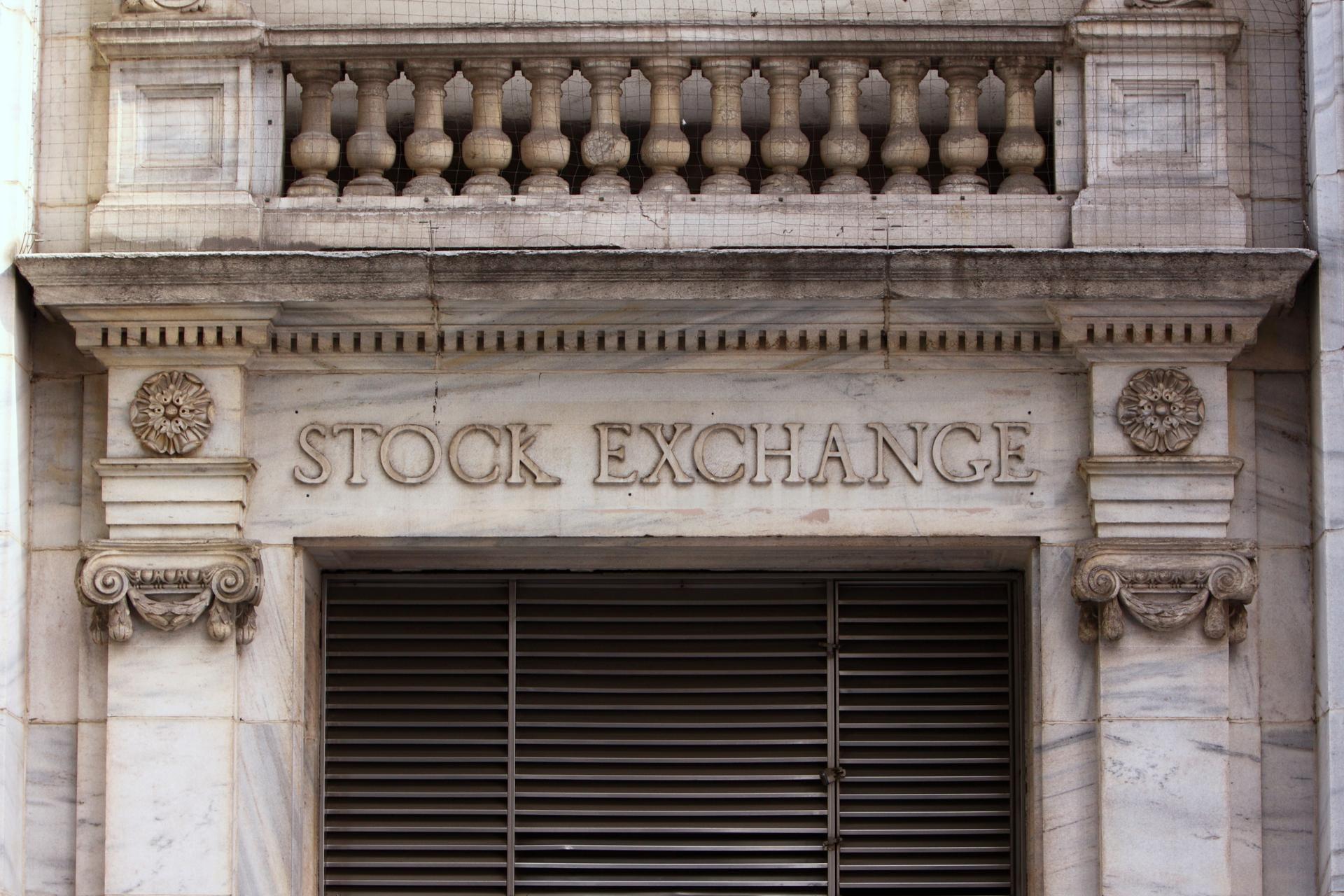
Outsourced Dealing Desks
Published on 17.10.2022 CEST
Outsourced dealing desks inevitably have an impact on your business and ours. As trading desks evolve toward multiasset trading, new asset classes such as crypto are increasing complexity because they are traded 24/7. Trust, technology, and people are becoming more important. But above all, when building the buy-side trading desk of the future, it’s all about asking the right questions.
Outsourced dealing desks – What does an outsourced dealing desk do?
An outsourced dealing desk is a desk of a third party that takes care of your trading flow (or more). It will not destroy your job as a buy-side trader, but it can expand the service level for your end clients. Outsourced dealing desks maintain the broker network, negotiate prices, make sure that your flow is compliant with all regulatory standards, and, depending on your needs, can offer bespoke services. The main goal is to improve operational excellence for their clients, which could cover asset management, banks, and other institutions with a need for high-quality execution services. Depending on what kind of provider you choose, the service level may even expand to global custody and other value-added services. Some only cover certain geographical areas, while others cover the whole world.
Make or buy?
To answer this question, you first need to evaluate what services are needed on the client side. A wide range of outsourced dealing desks are available – from plain vanilla execution services to bespoke solutions all the way to extremely complex setups. Next, you need to assess and define what you really need while at the same time considering the impact on your organization.
Asking the right questions when considering an outsourced dealing desk or broker
- What do you believe? Will the value chain continue to fragment further or not?
- Is an outsourced dealing desk a cost-effective solution for your company?
- Do you need to rethink your current strategy?
- Are you facing increasing cost pressure and an urgent need to drive efficiency?
- Are you willing and able to handle the increasingly complex and fragmented markets alongside the regulatory and compliance environment?
- Do you need a proper transaction cost analysis (TCA)?
- Does your current broker have the growing costs of trading under control (memberships, master data, exchange and custody fees)?
- What creates the most value for your firm? Are you looking for a low- or high-contact service? What assets do you want to trade?
- Do you need a 24-hour follow-the-sun model? This applies to crypto in particular, but is also relevant if you’re trading internationally.
- Is your trading department up to speed when it comes to pricing, RFPs, and effective execution costs?
- Are you sure that a membership in an exchange with no access to alternative trading venues is sufficient and cost-effective?
- Is your organization able to handle the increasingly complex regulatory requirements?
- Are your traders able to handle complex instructions (for example, do they have access to algorithmic trading and alternative venues)?
- Would you like to reduce your operational risk?
- Would you like to turn your fixed costs into variable ones? How about your premises, systems, licenses, and salaries?
What is Vontobel doing?
We offer services to regulated banks and asset managers in Switzerland and parts of Europe. From multiasset electronic trading solutions (equities, bonds, structured products, FX, ETD) to global custody, execution and security services are at the core of what we offer. By fulfilling our service commitment, we deliver bespoke solutions across the value chain, thus adding sustainable value for you as a client while ensuring compliance with regulatory requirements. Technical challenges with trading architectures, smart order routing, higher STP rates, TCA, and big data have become essential topics for our successful business model.
A real-life example of how an outsourced dealing desk (as we run it) can work for you
Vontobel has 155 fixed-income brokers working for it, which means the maintenance in terms of counterparty review is complex, time-consuming, and labor-intensive. However, the result is that our clients benefit from higher quality and greater access to liquidity. Vontobel operates its own smart order router on most traditional equity and bond exchanges as well as crypto exchanges. We spend a great deal on data analytics, and we know what the hurdles are. Legacy systems are a challenge – the question is how to integrate data analytics into EMS/OMS. There is simply too much data that can help both the buy and sell sides visualize key findings in order to gain actionable insights. We work with Tableau and other visualization systems to improve your performance and optimize costs overall. Data is not always used properly. It requires experts who can work with the end user to determine what they actually need. Seamless workflows and visualization are key.
What are the advantages and disadvantages of an outsourced dealing desk?
What is my view?
In my view, this approach may take longer and may not be suitable for everyone. It’s not a one-size-fits-all solution. In an ideal world, the structure of the outsourced dealing desk would be designed to avoid every conflict of interest. Personally, I believe that the truth is somewhere in between. One hundred percent outsourcing is not a golden ticket, but certain aspects of it are worth considering. As an outsourced dealing desk, we only serve you, not our prop flow, no CRBs, no ELPs. Our COP (client order protection) process ensures that your flow is not misused internally and protects against toxic flows and venues on the street side.
Are outsourced dealing desks suitable for everyone?
No. However, certain challenges will become more complex over time, which is why you may consider using these kinds of services. If we look at FX and crypto trading, what if some of your clients want to trade 24/7? That is not going to be sustainable and certainly not profitable at this stage. So, how about opening your e-banking 24/7 for access to Asian markets instead of shutting down the lines at 7 p.m.? It is an economies of scale game, like payments, and there will be plenty more pressure to keep costs under control.
Navigating the liquidity landscape is key, as is educating buy-side traders, either through sell-side or dedicated professionals. The landscape has changed, and market participants need to adapt quickly. Tech and trust (TT), or people and machines, are becoming more important as we emerge from these difficult times. That’s why it’s important to actively visit business partners. Working as a team (both buy/sell and the tech side) and joining working groups are key. The value of being physically present in the office was completely underestimated by the industry. While working from home was a good experience, trading is all about relationships, given the importance of access to knowledge.
In recent years, three core themes have emerged: liquidity, technology, and relationships with providers. Three years ago, the focus was more on technology, while in the future, relationships will become more important. Trading desks will move to a cross-asset approach on the buy side. Overall, COVID-19 has not hurt the industry in terms of innovation. Given the challenging environment, especially from a technical and risk perspective, significant and steady progress has been made over the last three years. This applies especially to algorithm RFQs and the implementation of data analytics tools. Innovation is being driven primarily by the sell side or nonbank/technology participants in the race to improve quality in the industry. Some representatives of the sell side recommend that the buy side proactively engage in conversations and seek more dialogue with innovators. The innovation wheel will turn faster and faster in the future, and agile leadership and adaptation to new circumstances will be key. The general state of the global economy is likely to lead to massive government intervention, which will again diminish the efficiency gains achieved by technology in recent years.
Three other challenges that will keep us busy
Transaction cost analysis
Real-time data analytics (not only after, but also before and during trading) will be the future in the long run. This will help the trader act during the trading period of an order. We identified the need for transaction cost analysis as a service from our customers. After several conversations with customers, colleagues, and competitors, we received clearly positive feedback. Finding TCA standards for each asset class may be the right solution; a “one-size-fits-all” approach is not an option, according to the experts. Fixed-income securities in particular pose a challenge due to the lack of reliable data. Should the regulator set standards or leave it to the industry? Financial market participants agreed that banks should remain self-regulated in this area, as there are too many trading venues, ELPs, and other factors that need to be considered. It is critical that the buy side provide feedback and ask questions in order to fully understand the outcome of a TCA. Therefore, education on both sides is key. Furthermore, code optimization can help increase speed.
HR and the war for talent
Another major challenge is inspiring leadership and raising awareness of the fact that people without technical knowledge will struggle in the next three to five years. The war for talent will increase massively as tech, fintech, and other nonbanks/brokers raise the level of competition on the HR side. The digital transformation of the workforce is critical. Many experienced traders will leave the industry in the next 10–12 years, while at the same time, younger talent is harder to attract and retain in the tech field, which solves many problems but also creates new challenges, especially on the HR side. Massive changes in skills are needed to meet the new reality. While the number of execution traders will decline, there will be a growing number of data analysts, technicians, and customer-facing sales traders in the coming years. Workflow relationships are vital, and it will be important to work agilely and not be confined by organizational charts. As illustrated above, in order to be successful in the future, it is crucial to upskill your traders today and lead them into new realities.
Future trend – agility and teamwork
Tech and sell side need to act as enablers while dark liquidity continues to grow. Meanwhile, RFQ platforms are gaining massive market share. Finding liquidity in different asset classes and understanding the pricing process and costs are handled in different ways. The quality of liquidity is becoming more important. For this reason, focus is now shifting to improving RFQ and IPO processes, as well as bond and nonequity in order to increase efficiency and help clients make the right decisions (e.g. algo wheel). Going forward, it will be important to watch the equity auction space, which currently appears to be one of the fastest growing segments. One way to grow your business is by expanding (geographic) access to different markets and assets. And last but not least, as companies focus more on technology, execution quality, and establishing trust with customers, the motto is “validate, verify, and prove.”
Contact us
Published on 17.10.2022 CEST
ABOUT THE AUTHORS
 Show more articles
Show more articlesMatthias Schiesser
Head of Distribution Electronic Trading Solutions
Matthias Schiesser heads the Electronic Trading Solutions department in the Transaction Banking unit at Vontobel. He is responsible for the distribution of Vontobel’s electronic Low-Touch Trading Platform, Global Custody, and FX products.





